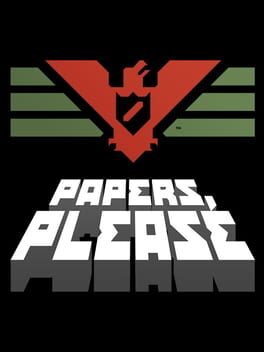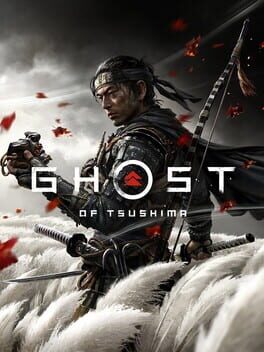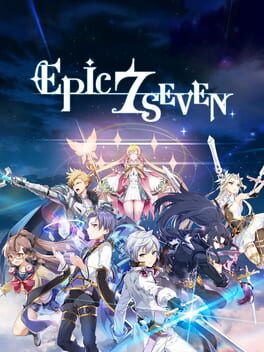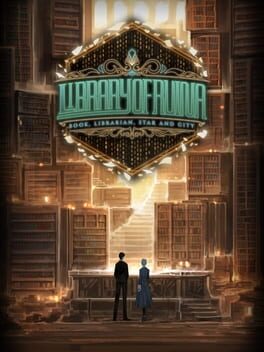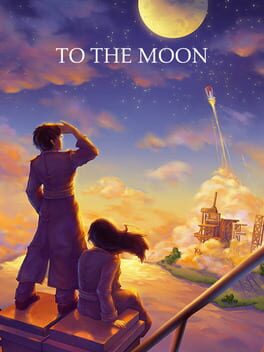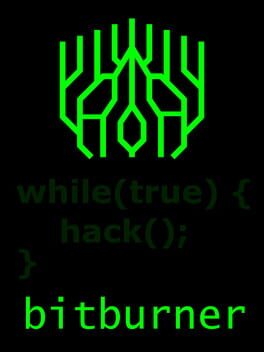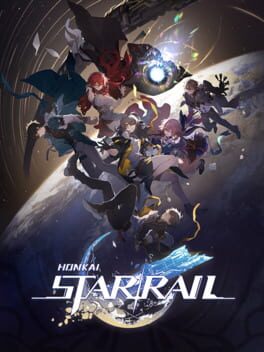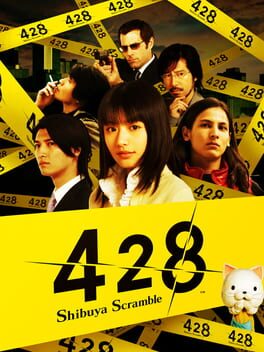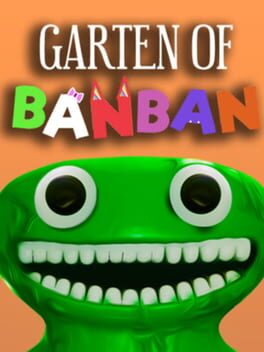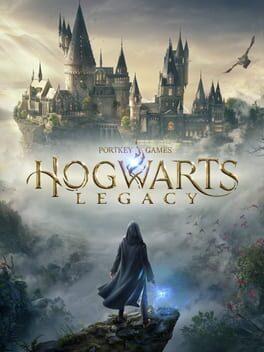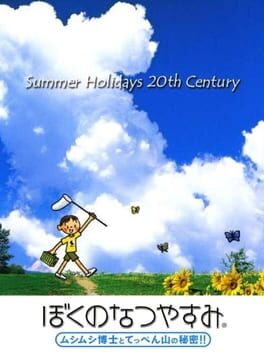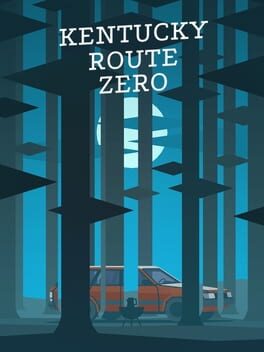akanta
2013
2013
The racism allegory in the first half of the game is handled super awkwardly, to the point of being actually racist, and the second part of the game with its quantum mechanics is confusing not because it's intelligent but because it's obtuse. Furthermore, that whole ordeal regarding quantum mechanics and time travel directly conflict with the game's earlier message and intention, making the final product extremely uneven and thematically inconsistent. The twist is also poorly explained and executed.
This is a game that attempted to be shocking and unconventional, yet as shown by the widespread adoration given to it by the mainstream gaming press (undeservingly), it clearly failed. Compare the reception this game had to actually shocking games like Pathologic, and it's clear that in spite of its lofty ambitions to become a part of true art, it's just another piece of soulless, corporate, bland mass-market kitsch. With bad writing and storytelling to boot.
In fact, the story is so horrendous that the (admittedly very fun) gameplay would itself make a better game if it didn't come packaged with any story at all. I could see this game be a decent time-waster if it was just the shooting gameplay with none of the awful story bundled in, but given the prerogative towards enjoying the gameplay is waddling through hours of murky word vomit, the only sensible use for this game is to serve as fuel for the nearest dumpster bin.
Overall Rating: 1/5 (Dumpster Fire)
This is a game that attempted to be shocking and unconventional, yet as shown by the widespread adoration given to it by the mainstream gaming press (undeservingly), it clearly failed. Compare the reception this game had to actually shocking games like Pathologic, and it's clear that in spite of its lofty ambitions to become a part of true art, it's just another piece of soulless, corporate, bland mass-market kitsch. With bad writing and storytelling to boot.
In fact, the story is so horrendous that the (admittedly very fun) gameplay would itself make a better game if it didn't come packaged with any story at all. I could see this game be a decent time-waster if it was just the shooting gameplay with none of the awful story bundled in, but given the prerogative towards enjoying the gameplay is waddling through hours of murky word vomit, the only sensible use for this game is to serve as fuel for the nearest dumpster bin.
Overall Rating: 1/5 (Dumpster Fire)
2020
Coming from a native japanese person, this game is oblivious to actual japanese history. It dances with fantasies of japanese stereotypes like "honor" while ignoring the undercurrent of actual samurai life, which is both far less honorable and far more mundane than depicted. It would be one thing if this was designed to be fantastical, but it isn't. Sucker Punch designed this game with the goal of accurately portraying Japan's culture and history, and they failed at that. To say otherwise would be a disservice to the memory of the samurai themselves.
Besides, the game is just bland open world AAA kitsch with a big map and picturesque locations made by crunching underpaid developers and artists. Which is to say, it's a game that isn't bad, but isn't memorable either. A game that entices the senses but never the imagination, that gives the illusion of enjoyment while leaving you empty in the end. It's a AAA game in 2020 and that's all I really have to say.
Besides, the game is just bland open world AAA kitsch with a big map and picturesque locations made by crunching underpaid developers and artists. Which is to say, it's a game that isn't bad, but isn't memorable either. A game that entices the senses but never the imagination, that gives the illusion of enjoyment while leaving you empty in the end. It's a AAA game in 2020 and that's all I really have to say.
2019
The first thing I will say in regards to Outer Wilds is that it is...different. Outer Wilds rejects all sensibilities of form and structure--and for that reason alone, your enjoyment of the game is largely dependent on whether you can attune to the game's quirky and often-arbitrary ideas. As such, it's very hard to give Outer Wilds an arbitrary rating, because the game itself fundamentally eschews conventional notions of what a "good game" should be.
To put it more simply, Outer Wilds is less of a video game, and more of an experience in video game form. Yet, paradoxically, it's perhaps the best example of an experience that can ONLY work in video game form. It's something that for many people, will simply not make sense. For the people who can adjust to its ambiguity and erratic structure, however, it's an experience unlike anything--past or present--in the medium of video games.
Therefore, despite the multitude of five-star reviews that lace this page (including mine), Outer Wilds is unfortunately a game I cannot recommend to everyone, despite my belief in it being amongst the greatest titles in this medium. It is something that takes a certain mindset and experience to appreciate, and without that mindset the game will just feel meaningless. It kind of reminds me of "Waiting for Godot"--one person might see the pinnacle of 20th century drama, while the other person might see two people sitting under a tree for two and a half hours. This is the video game equivalent of that.
To put it more simply, Outer Wilds is less of a video game, and more of an experience in video game form. Yet, paradoxically, it's perhaps the best example of an experience that can ONLY work in video game form. It's something that for many people, will simply not make sense. For the people who can adjust to its ambiguity and erratic structure, however, it's an experience unlike anything--past or present--in the medium of video games.
Therefore, despite the multitude of five-star reviews that lace this page (including mine), Outer Wilds is unfortunately a game I cannot recommend to everyone, despite my belief in it being amongst the greatest titles in this medium. It is something that takes a certain mindset and experience to appreciate, and without that mindset the game will just feel meaningless. It kind of reminds me of "Waiting for Godot"--one person might see the pinnacle of 20th century drama, while the other person might see two people sitting under a tree for two and a half hours. This is the video game equivalent of that.
2018
I mean, what is there to say about E7? It's yet another game in the same vein as summoners war or raid shadow legends, being a turn-based hero gacha with a strong emphasis on draft-based, real time PVP. As a long-time player that made it to Emperor, I will state that E7 is among the best, if not THE best in this category of gacha, with an amazing and highly responsive dev, a dedicated and friendly community, and of course plenty of cute waifus to geek out on (adin pls marry me). Yet, my low score comes from the fact that I have gradually started to dislike this entire style of gacha (and just overall) game in general. The story is inoffensive and middling at best and downright horrific at worst, the gameplay is repetitive and tedious, and while the animations are flashy and the waifus are cute, lying beneath that is a game that is fundamentally hollow, with nothing meaningful. And that's not a fault of the devs, which as I stated earlier, are wonderful. It's a fault of this entire subgenre of gacha game design, where climbing the pvp ladder is your only objective and the entire game is predicated and revolved around said objective, from grinding artifacts and gear to make your pvp hero stronger to rolling new heroes just for pvp. Because every hero fundamentally plays the same (you literally click one of three buttons and it does an action) and there is no mechanical skll whatsoever, there is zero incentive to NOT use the most broken and overpowered hero in the game, which creates this sort of stale meta. And that is my main issue with turn-based games in general: at the end of the day, what differentiates each character from each otber? In fighting games, it's skillsets. In shooting games, it might be a gun ability. But in turn based combat, each character plays mechancially the same, even if they have different effects and looks. "Yet you like persona 5 and visual novels, akanta, what a hypocrite" you might say. Indeed I do. But said games offer more than just gameplay. It's not the main focus. In E7, there is nothing other than PVP and gameplay. It has a storyline that makes genshin seem cohesive and enough plot holes to rival David Cage games. And the visuals? They're nice, but after seeing them for the billionth time, you become accustomed to it. In fact, I would rather not see the S3 animation every time after the first, since I just feel like it is a waste of 5 seconds of my life every time I use it.
Despite my affinity for E7 and the thousands of hours I've spent on it, I unfortunately have to recommend against the game. My time with E7 has been long and storied, but as with any game, it is time to say goodbye. And, unfortunately, it was a goodbye that was a lot easier to make than I had originally imagined. So there be it. Goodbye, Epic Seven. You treated me well. If only you had been a different genre of game, I might have treated you the same.
Despite my affinity for E7 and the thousands of hours I've spent on it, I unfortunately have to recommend against the game. My time with E7 has been long and storied, but as with any game, it is time to say goodbye. And, unfortunately, it was a goodbye that was a lot easier to make than I had originally imagined. So there be it. Goodbye, Epic Seven. You treated me well. If only you had been a different genre of game, I might have treated you the same.
2021
LoR has always been a problem child for me to form a definitive judgement on, because every time I play it my opinions vary wildly. The first time I finished the game, I went out thinking the story was melodramatic filth, the gameplay was decent but way too unbalanced, and the art/music/va was really good. The second time I finished the game, I realized the story was far better than I originally gave it credit for (and much less melodramatic than I thought), with a lot of layers of symbolism tucked beneath the seemingly matter-of-fact writing. However, I also discovered that the gameplay was far, far worse than I originally thought.
This review is based on the third time I played this game. Unlike the previous two times, I played this with mods, specifically nogrind (which vastly reduced annoyances in gameplay) and a few skin mods. And unlike the last two times, I walked away realizing that the game was, above all else, balanced. No singular element detracted from the experience or felt out of place, but every element had one or two individual flaws that prevented it from reaching its true potential.
For example, take the story. The story is, on paper, amazing. Every character is interesting and clearly disparate from each other, and are refreshingly fleshed out to be more than paper cutouts of stereotypes like in so many other games. Well, that is with one exception: Angela. Which is odd, given that she's the main female protagonist of the entire game, and ostensibly should be more three-dimensional than any other character. Yet, her characterization is notably shallow all the way through, and what is there is a medley of worn caricatures of androids wanting to be human that we've seen so many times before in every form of media imaginable. This is doubly confusing given that the other main character, Roland, is lavished on by heaps and heaps of gorgeous and sensible writing, eloquent stories, and a sense of humanity and emotionality that I rarely see in video game characters. The best parts of Ruina's story could legitimately rival not only top video game stories like Fata Morgana or Cyanotype Daydream, but even the pinnacle of literature: think Dickens, Tolstoy, Hemingway, Hardy, Flaubert, and Ellison. No, I'm not exaggerating. The strong parts of LoR are legitimately that good. Meanwhile, the weak parts of LoR's writing are slightly better than David Cage writing and on par with an average Ubisoft open world game.
Likewise, the core gameplay loop is incredible when it clicks. Satisfying, ethereal, terrifying yet exhilarating, LoR creates tension in ways no other card game could even dream of. Yet, the steps needed to make the gameplay simply click is so convoluted and needlessly frustrating that 90% of people will quit once they hit one of the many unfair difficulty walls (or, as the community likes to call it, "vertical difficulty curves"). Even I was frustrated by the later stages of the game at some bosses, and I am a veteran player that beat this damn game three times and am also using a mod specifically designed to minimize frustration and annoyances in gameplay. If I out of all players can still get frustrated, I shudder to think of the new player experience. And given that ProjectMoon has officially moved on to Limbus Company, it seems that any gameplay issues are etched in ink.
Library of Ruina, for around 1/3 of the runtime, feels like a 11/10 game, with seamless ludologic and narratologic intertwining, a story that both moves and excites, and gameplay that is simply breathless at its best. Yet, for 2/3 of the game's 80+ hour runtime, LoR is a slog, with story sections that are poorly written and gameplay segments that are poorly designed. As much as I would love to give LoR a 5 star rating for those brilliant segments alone, to be completely objective, the quality is simply not consistent enough to warrant a unhesitant endorsement. However, you should still buy it.
This review is based on the third time I played this game. Unlike the previous two times, I played this with mods, specifically nogrind (which vastly reduced annoyances in gameplay) and a few skin mods. And unlike the last two times, I walked away realizing that the game was, above all else, balanced. No singular element detracted from the experience or felt out of place, but every element had one or two individual flaws that prevented it from reaching its true potential.
For example, take the story. The story is, on paper, amazing. Every character is interesting and clearly disparate from each other, and are refreshingly fleshed out to be more than paper cutouts of stereotypes like in so many other games. Well, that is with one exception: Angela. Which is odd, given that she's the main female protagonist of the entire game, and ostensibly should be more three-dimensional than any other character. Yet, her characterization is notably shallow all the way through, and what is there is a medley of worn caricatures of androids wanting to be human that we've seen so many times before in every form of media imaginable. This is doubly confusing given that the other main character, Roland, is lavished on by heaps and heaps of gorgeous and sensible writing, eloquent stories, and a sense of humanity and emotionality that I rarely see in video game characters. The best parts of Ruina's story could legitimately rival not only top video game stories like Fata Morgana or Cyanotype Daydream, but even the pinnacle of literature: think Dickens, Tolstoy, Hemingway, Hardy, Flaubert, and Ellison. No, I'm not exaggerating. The strong parts of LoR are legitimately that good. Meanwhile, the weak parts of LoR's writing are slightly better than David Cage writing and on par with an average Ubisoft open world game.
Likewise, the core gameplay loop is incredible when it clicks. Satisfying, ethereal, terrifying yet exhilarating, LoR creates tension in ways no other card game could even dream of. Yet, the steps needed to make the gameplay simply click is so convoluted and needlessly frustrating that 90% of people will quit once they hit one of the many unfair difficulty walls (or, as the community likes to call it, "vertical difficulty curves"). Even I was frustrated by the later stages of the game at some bosses, and I am a veteran player that beat this damn game three times and am also using a mod specifically designed to minimize frustration and annoyances in gameplay. If I out of all players can still get frustrated, I shudder to think of the new player experience. And given that ProjectMoon has officially moved on to Limbus Company, it seems that any gameplay issues are etched in ink.
Library of Ruina, for around 1/3 of the runtime, feels like a 11/10 game, with seamless ludologic and narratologic intertwining, a story that both moves and excites, and gameplay that is simply breathless at its best. Yet, for 2/3 of the game's 80+ hour runtime, LoR is a slog, with story sections that are poorly written and gameplay segments that are poorly designed. As much as I would love to give LoR a 5 star rating for those brilliant segments alone, to be completely objective, the quality is simply not consistent enough to warrant a unhesitant endorsement. However, you should still buy it.
2011
To the moon is what happens when someone makes a story entirely out of melodrama. Literally. Every single "sad" moment is rinsed for the maximum amount of screentime, every single word and sentence is not written but calculated, and every single character seems to be tailored towards their most tragic flaws to exploit the audience's emotion. The game beat me over the head with so much melodrama and "sad" moments that the only way it could try to force me to cry more is if it tried to beat me in real life.
Yet, for all the melodrama, I didn't cry once. At the end of the day, after all, what reason did I have to cry for the characters when I could barely remember their names? Every character is stuffed to the brim with overused tropes, shallow personalities, laughably amateur dialogue, and incredibly simplistic motivations. I had no way of emphasizing with any character in this game when none of them were written well enough for me to care about and connect to. In fact, none of them were even written well enough to resemble a living, breathing person. And with no gameplay to speak of, the only action one can take to advance the game boils down to reading countless lines of sterile, uninspired dialogue.
Yet, for all the melodrama, I didn't cry once. At the end of the day, after all, what reason did I have to cry for the characters when I could barely remember their names? Every character is stuffed to the brim with overused tropes, shallow personalities, laughably amateur dialogue, and incredibly simplistic motivations. I had no way of emphasizing with any character in this game when none of them were written well enough for me to care about and connect to. In fact, none of them were even written well enough to resemble a living, breathing person. And with no gameplay to speak of, the only action one can take to advance the game boils down to reading countless lines of sterile, uninspired dialogue.
2021
From a learning perspective, this is undoubtedly the best way to learn scripting. However, therein lies the problem: this is meant to be educational just as much as it is meant to be fun, which means that every element revolves around teaching the user rather than allowing each element to shine independently.
This is seen in the core gameplay loop and progression. When you strip away all the programming elements, the game is hilariously cookie-cutter and bland, essentially being universal paperclips with code. The story is an afterthought, the different systems and mechanics have clunky interactions, the progression is unnatural and artificially controlled, and for people already experienced with code there is very little benefit of playing this game over the mountains of other free cookie clicker ripoffs that pollute steam like the downstream sewage of a chemical plant.
Of course, some people might argue that the act of solving problems with code and bugfixing is itself both unique and relaxing. And to that I say if you have so much fun writing JavaScript for 5 hours a day, go to leetcode or hackerrank and grind problems there. It's fundamentally the same thing, except leetcode problems are probably more complex and interesting for experienced programmers.
Overall, this is an incredible educational tool that should be used in high schools and colleges across the country. But that's all it is. It's a tool. Games are an art form. The purpose of games are not to fill some sort of functionality, but to act for the sake of games itself. By its very nature, this is not and can never be true art because it is designed with a functional objective in mind, and thus constitutes kitsch. This is not a game. This is an interactive, playable, and highly addictive JavaScript textbook. It might have a structure and form resembling games, and it might be classified as a game on steam, but those video game elements are not used to expand upon the video game form in bitburner, but to create an incentive for people to learn JavaScript.
As a game: 0.5/5 (Stay Away At All Costs)
As a learning tool: 5/5 (Flawless)
This is seen in the core gameplay loop and progression. When you strip away all the programming elements, the game is hilariously cookie-cutter and bland, essentially being universal paperclips with code. The story is an afterthought, the different systems and mechanics have clunky interactions, the progression is unnatural and artificially controlled, and for people already experienced with code there is very little benefit of playing this game over the mountains of other free cookie clicker ripoffs that pollute steam like the downstream sewage of a chemical plant.
Of course, some people might argue that the act of solving problems with code and bugfixing is itself both unique and relaxing. And to that I say if you have so much fun writing JavaScript for 5 hours a day, go to leetcode or hackerrank and grind problems there. It's fundamentally the same thing, except leetcode problems are probably more complex and interesting for experienced programmers.
Overall, this is an incredible educational tool that should be used in high schools and colleges across the country. But that's all it is. It's a tool. Games are an art form. The purpose of games are not to fill some sort of functionality, but to act for the sake of games itself. By its very nature, this is not and can never be true art because it is designed with a functional objective in mind, and thus constitutes kitsch. This is not a game. This is an interactive, playable, and highly addictive JavaScript textbook. It might have a structure and form resembling games, and it might be classified as a game on steam, but those video game elements are not used to expand upon the video game form in bitburner, but to create an incentive for people to learn JavaScript.
As a game: 0.5/5 (Stay Away At All Costs)
As a learning tool: 5/5 (Flawless)
2023
I am a firm believer that games, at heart, are an art form. They exist like all other art mediums not for any extrinsic value such as money or fame, but for the inherent beauty that they posess. Art, for the sake of art.
Yet, this "game", or rather I should call it, kitsch, goes against all of those values. Yes, the waifus are hot, which is why this gets more than a half star rating. But in terms of its design, it's clear that every aspect around this piece of kitsch revolves around making mihoyo money. And to be fair, there's nothing wrong with that. What I take offense to is the idea that this is somehow a game. Call it a digital experience, a interactive simulator, whatever, but don't call it a game. It lacks any sort of artistic merit or creative vision needed for pixels on the screen to be classified as a game by me.
The story, while better than genshit, is still hilariously bland and generic. Characters pop out of nowhere and are introduced with gaping holes in the plot and lopsided development, all for the sole reason so that they can later be sold as 5 stars a few months down the line. The environment and world, while beautiful, is hollow and static: there's no life to be found in the scenery here, only eye-candy setpieces and window-dressing that fades in the midst of time. For all the expansive set of characters and lore, there is nothing to keep me caring or invested in any of it due to the stylistically uneven and overly flowery writing and bad story. The gameplay, while passable (another reason why it doesn't get a 0.5/5 star rating), has almost zero connection to the story and feels forced in, like at a boardroom meeting a bunch of mihoyo executives looked at a chart and determined that the target audience wanted turn-based combat rather than considering whether said turn-based combat would work in the context of every other part of the game.
And really, that's my main concern with this game. Up until I abandoned it out of pure disgust, the entire game felt...constructed. Every single stylistic and gameplay choice made in this game felt formulaic and -- again -- made with the goal of monetization. Every single dialogue line felt forced and made with some ulterior goal or motivation rather than being spoken for the sake of speech itself.
If you want to play a "game", don't play this, because it simply is not one. It's a highly elaborate interactive gacha simulation with all the beauty, creativity, vision, and perspective that makes games one of my favorite artistic mediums ripped out and replaced with shady monetization and shameless sexualization.
Overall Rating: 1/5 (Dumpster Fire)
Yet, this "game", or rather I should call it, kitsch, goes against all of those values. Yes, the waifus are hot, which is why this gets more than a half star rating. But in terms of its design, it's clear that every aspect around this piece of kitsch revolves around making mihoyo money. And to be fair, there's nothing wrong with that. What I take offense to is the idea that this is somehow a game. Call it a digital experience, a interactive simulator, whatever, but don't call it a game. It lacks any sort of artistic merit or creative vision needed for pixels on the screen to be classified as a game by me.
The story, while better than genshit, is still hilariously bland and generic. Characters pop out of nowhere and are introduced with gaping holes in the plot and lopsided development, all for the sole reason so that they can later be sold as 5 stars a few months down the line. The environment and world, while beautiful, is hollow and static: there's no life to be found in the scenery here, only eye-candy setpieces and window-dressing that fades in the midst of time. For all the expansive set of characters and lore, there is nothing to keep me caring or invested in any of it due to the stylistically uneven and overly flowery writing and bad story. The gameplay, while passable (another reason why it doesn't get a 0.5/5 star rating), has almost zero connection to the story and feels forced in, like at a boardroom meeting a bunch of mihoyo executives looked at a chart and determined that the target audience wanted turn-based combat rather than considering whether said turn-based combat would work in the context of every other part of the game.
And really, that's my main concern with this game. Up until I abandoned it out of pure disgust, the entire game felt...constructed. Every single stylistic and gameplay choice made in this game felt formulaic and -- again -- made with the goal of monetization. Every single dialogue line felt forced and made with some ulterior goal or motivation rather than being spoken for the sake of speech itself.
If you want to play a "game", don't play this, because it simply is not one. It's a highly elaborate interactive gacha simulation with all the beauty, creativity, vision, and perspective that makes games one of my favorite artistic mediums ripped out and replaced with shady monetization and shameless sexualization.
Overall Rating: 1/5 (Dumpster Fire)
As much as I love visual novels like Sakura no Toki, I would never recommend them to someone unfamiliar with the genre, or even someone who has played vn-adjacent titles such as planescape torment, 13 sentinels, library of ruina, kentucky route zero, or disco elysium. Many visual novels nowadays try to exclusively appeal to heavy visual novel readers, using tropes and references that people in the community can understand and enjoy, but often causes people outside the community to be alienated by.
Not 428. In fact, it's probably the single most mainstream-accessible visual novel I've ever seen, even more than visual novels that have actually found mainstream success such as ace attorney or DDLC. And unlike those two, it never sacrifices its writing quality or charm to do so.
Koichiro Ito could write Her Story, but Sam Barlow could never write 428: Shibuya Scramble.
Not 428. In fact, it's probably the single most mainstream-accessible visual novel I've ever seen, even more than visual novels that have actually found mainstream success such as ace attorney or DDLC. And unlike those two, it never sacrifices its writing quality or charm to do so.
Koichiro Ito could write Her Story, but Sam Barlow could never write 428: Shibuya Scramble.
2018
Beefstrong is one of those obscure indie developers that, to be honest, should stay obscure. And that's not meant in a bad way. But the way Beefstrong makes games and the visual identity and the design and EVERYTHING about Beefstrong games simply can not work in the mainstream games industry. It's so novel, so unique, so radically different that there is no coterminous creation in the realm of 3d space. It's unabashed in its identity, and that naturally makes it into a marmite-like product, except in this case the vast majority of people will walk away in the first 10 minutes, confused about its appeal, and the remaining 5% of people will fall madly in love with it.
I'm in the latter group. If I wasn't trying to be objective here, this -- along with any other Beefstrong game -- would be an easy 5/5. Yes, it's a crudely-made game with a hilariously low budget. Yet, there is a notion of artistic merit here that is severely lacking from the majority of the games industry. These small, undiscovered passion projects are amongst my favorite in gaming -- and Beefstrong does passion projects better than almost anyone else. '
A while ago there was an Atlantic oped that game shouldn't have stories, as they are the "medium of material". THIS is the perfect poster child for that line of thought. This is a game obsessed with material, and what emerges is an incredibly cohesive creative vision.
Overall Rating: 4/5 (Masterpiece)
on a side note, this also reminded me a bit of Mary Flanagan's criminally underrated 2003 game [domestic]
I'm in the latter group. If I wasn't trying to be objective here, this -- along with any other Beefstrong game -- would be an easy 5/5. Yes, it's a crudely-made game with a hilariously low budget. Yet, there is a notion of artistic merit here that is severely lacking from the majority of the games industry. These small, undiscovered passion projects are amongst my favorite in gaming -- and Beefstrong does passion projects better than almost anyone else. '
A while ago there was an Atlantic oped that game shouldn't have stories, as they are the "medium of material". THIS is the perfect poster child for that line of thought. This is a game obsessed with material, and what emerges is an incredibly cohesive creative vision.
Overall Rating: 4/5 (Masterpiece)
on a side note, this also reminded me a bit of Mary Flanagan's criminally underrated 2003 game [domestic]
2023
2023
Putting JK Rowling and transphobia and the game's neo-nazi creative director aside, let's just talk about the quality of the game itself, eh?
Because one of the big things I see regarding discourse about this game is its development, the people behind it, etc. And while I personally don't support it due to the morality issues that the development entailed, I think it's even more important to note that even if this was developed like any other game with any other team, it's simply not a good game. By any stretch of the imagination. I feel like many gamers have just wrapped themselves up in this mass hysteria to "own the libs" without stopping to even think if the game that they're circlejerking just because the trans community protested about is even something worth circlejerking over, which in this case it isn't. A laughably bad story, bland sidequests, a dull and monotone open world, unredeemable characters, clunky combat, and convoluted systems show that this isn't the wizarding game you've always dreamed of. No, it's just another middle-of-the-pack shovelware generic open-world RPG with the Harry Potter brand slapped on top. If you hadn't told me this was developed by WB games, I would have thought this was the next fucking Ubisoft game. It's an egregious waste of time on all fronts possible, and not worth your time in the slightest. Open your eyes from the realm of AAA kitsch and play something more artistic instead.
Overall Rating: 1/5 (Dumpster Fire)
Because one of the big things I see regarding discourse about this game is its development, the people behind it, etc. And while I personally don't support it due to the morality issues that the development entailed, I think it's even more important to note that even if this was developed like any other game with any other team, it's simply not a good game. By any stretch of the imagination. I feel like many gamers have just wrapped themselves up in this mass hysteria to "own the libs" without stopping to even think if the game that they're circlejerking just because the trans community protested about is even something worth circlejerking over, which in this case it isn't. A laughably bad story, bland sidequests, a dull and monotone open world, unredeemable characters, clunky combat, and convoluted systems show that this isn't the wizarding game you've always dreamed of. No, it's just another middle-of-the-pack shovelware generic open-world RPG with the Harry Potter brand slapped on top. If you hadn't told me this was developed by WB games, I would have thought this was the next fucking Ubisoft game. It's an egregious waste of time on all fronts possible, and not worth your time in the slightest. Open your eyes from the realm of AAA kitsch and play something more artistic instead.
Overall Rating: 1/5 (Dumpster Fire)
2000
This review contains spoilers
Like all other Japanese games I play, this was played on the Japanese version
A major appeal of this game is the ability to relieve your childhood in a sense. Unfortunately, I can't remember much of my childhood, and what I can remember is, without being personal, shit. And without the relatability to the main character, the entire game sort of...falls apart. Yeah, there's scenes that touch on deeper issues, such as the war and moving out and the death of a familial figure. But those are only moments, too brief and too hurried, in the azure landscape of a perfect, reflected sky. And in this landscape of perfectly pristine idealism, pastel colors, and snow-white painted clouds, those brief respites of realism and explorations of longing, loss, and struggle feel...lilliputian. While their rarity undoubtedly makes those special moments stand out, I shouldn't have to trudge through the meaningless wonder of a childhood dream to get there. The entire game should stand out to me, and this simply doesn't.
Perhaps it's just my bias as someone who experienced a childhood full of abuse, depression, trauma that I prefer games about childhood abuse, depression, trauma (case in point: the entire Hello Charlotte series, which is arguably miles worse mechanic-wise than this) over games about childhood wonder, innocence, and joy like this game. When the vacation ended, I felt nothing. After all, what was I supposed to feel? This wasn't my childhood; this wasn't even close to my childhood. This was Boku's childhood, Boku's summer, Boku's story, and Boku's joy. I was merely a visitor to the spectacle, able to see but not truly participate, and certainly never truly connect to those pastel colors and sunny skies. When I view characters, I want to view them extensions of my lived-in self, or unique, breathing people. I couldn't connect with the former, and Boku is written nowhere near well enough for the latter.
The game tries to compare the levity of the summer to the bitterness that followed in the pursuit of a notion of nostalgia. And it does so in an extremely self-decadent, saccharine way that makes it easy to gulp down, bite after star-laced bite, assuming you're into the childhood charm this game provides. It's one of those titles where the appeal is immediately evident, which is why I'm so hesitant to give this a low score and criticize it so harshly.
Unfortunately for the game, I'm fructose intolerant. I'm no longer a child, it seems.
Overall Rating: 1/5 (Dumpster Fire)
*this review is a personal opinion of mine and not objective in the slightest
A major appeal of this game is the ability to relieve your childhood in a sense. Unfortunately, I can't remember much of my childhood, and what I can remember is, without being personal, shit. And without the relatability to the main character, the entire game sort of...falls apart. Yeah, there's scenes that touch on deeper issues, such as the war and moving out and the death of a familial figure. But those are only moments, too brief and too hurried, in the azure landscape of a perfect, reflected sky. And in this landscape of perfectly pristine idealism, pastel colors, and snow-white painted clouds, those brief respites of realism and explorations of longing, loss, and struggle feel...lilliputian. While their rarity undoubtedly makes those special moments stand out, I shouldn't have to trudge through the meaningless wonder of a childhood dream to get there. The entire game should stand out to me, and this simply doesn't.
Perhaps it's just my bias as someone who experienced a childhood full of abuse, depression, trauma that I prefer games about childhood abuse, depression, trauma (case in point: the entire Hello Charlotte series, which is arguably miles worse mechanic-wise than this) over games about childhood wonder, innocence, and joy like this game. When the vacation ended, I felt nothing. After all, what was I supposed to feel? This wasn't my childhood; this wasn't even close to my childhood. This was Boku's childhood, Boku's summer, Boku's story, and Boku's joy. I was merely a visitor to the spectacle, able to see but not truly participate, and certainly never truly connect to those pastel colors and sunny skies. When I view characters, I want to view them extensions of my lived-in self, or unique, breathing people. I couldn't connect with the former, and Boku is written nowhere near well enough for the latter.
The game tries to compare the levity of the summer to the bitterness that followed in the pursuit of a notion of nostalgia. And it does so in an extremely self-decadent, saccharine way that makes it easy to gulp down, bite after star-laced bite, assuming you're into the childhood charm this game provides. It's one of those titles where the appeal is immediately evident, which is why I'm so hesitant to give this a low score and criticize it so harshly.
Unfortunately for the game, I'm fructose intolerant. I'm no longer a child, it seems.
Overall Rating: 1/5 (Dumpster Fire)
*this review is a personal opinion of mine and not objective in the slightest
2013
Kentucky Route Zero is one of those games that most know about, many put in their backlogs...yet few attempt to play and even fewer complete.
There's a very good reason for this: KRZ gets closer to a book than any game I have ever played, including visual novels. In fact, strip away the tiny amount of interactivity and you're left with one of the best 21st century magical realist novels written this side of Latin America. And while that might sound like a good thing -- after all, books are far more respected in society than video games -- its stature as more befitting a novel than a walking simulator actually works against it in multiple ways.
First (and most obviously) of all, it's long. Extraordinarily, sometimes excessively long. And this isn't just talking about the length of the game's story, but the way the story is presented. One of the benefits video games and visual novels have over traiditional mediums of fiction is their ability to break apart larger sections of plot into bite-size pieces that are far easier to digest. KRZ, on the other hand, does not do that. Aside from Disco Elysium and indie arthouse games (which KRZ should honestly be categorized as) like [domestic], I don't think I have ever seen a game with paragraphs as wordly and fleshed out as KRZ. And not only that: they're dense. There are no wasted words in KRZ, no filler sentences, no overlong paragraphs. Every word is both an action and an imperative. Every word carries its own weight, an emotional and literary baggage that weighs down on your consciousness at all times. This makes for good fiction, as KRZ often is, but it also makes KRZ extremely difficult to read in long sessions. Personally, I could only read KRZ for an hour or two at a time before having to take a break for a couple of days, just to digest and comprehend the words I had prior seen, as well as to give my poor brain a break.
Furthermore, like any good magical realist novel, there are many characters. So many characters, in fact to the point where if this was any other game it would be almost impossible to keep track of them all. Luckily, like any good magical realist novel, each character is given the proper time and exposition to develop them into flesh-and-bone humans instead of words on a page, and the amount of love and attention that went into writing and developing each character simply cannot be overstated. Even with how developed each character is, it's still a struggle, though, that remains present throughout the game. This, again, is something common in novels, especially modernist novels, yet exceedingly rare in games. In most games, the character that gets the most development...is you. You play as the main character, and everyone else revolves around you. As such, even if there are hundreds or even thousands of characters, because those characters aren't you or the people that are close to you, they don't matter past a passing reference or a short cutscene or a fetch quest. In Kentucky Route Zero, you are not the main character, or any sort of important character at all. You are a vessel for their stories; your legacy is to carry their history. As such, to understand even the main story, you have to understand far, far more people -- and by extension, the qualities and experiences of said people -- than you normally would with any other game.
Yet, even given the strength of the overall game's story, I cannot say the same for the main plot. This is odd, given that the side stories are brilliant and beautiful and executed perfectly. Indeed, the game is at its strongest when it is just unfolding the narratives of the people you're around, and revealing their pasts. Meanwhile, Conway's story...is not nearly as good, and in fact is the weakest story in the entire game. Every time I was reading through Conway's own mission of the antiques company, I was biding my time until the side stories showed up back again, because that is where the real meat of the game lies.
Before closing this review, I'd like to touch upon the episodic format and gameplay. Gameplay is simple point-and-click. As I stated earlier, it's crude. Yet, it has just the right amount of interaction and gets the job done. The episodic format is handled perfectly, and the style is consistently even.
In conclusion, Kentucky Route Zero is an absurdly-focused, fiercely creative tour de force that is executed with utmost grace and stylistic flair. Its unapologetic complexity and neverending length naturally makes it a divisive game, and many might (with good intention) view the game as being flowerly, dull, and pretentious. This is somewhat fair, especially since much of the genius behind the game's wriitng can only be revealed after careful observation, or in my case, a second playthrough (I found it dull and monotonous the first time through). Yet, pushing through Kentucky Route Zero and truly getting to know the dozens of dazzlingly-written characters reveals one of the most hilarious, heartbreaking, poignant, satirical, and ultimately unforgettable experiences you will ever encounter in this medium. As I stated in the beginning of the review, Kentucky Route Zero isn't just one of the best stories in gaming, but the best 21st century work of fiction in the magical realism genre published outside of Latin America. The developers struck a Faustian bargain to bring us this game, and we, as gamers, all collectively benefit.
But, in finality, a word of advice: to understand the magic behind this game, you need to committ. You need to understand, to listen, to put in the time and the effort. In Kentucky Route Zero, you're not talking to walking encylopedias or fetch quest robots. You're talking to humans. Remember that.
Overall Rating: 3.5/5 (Phenomenal)
There's a very good reason for this: KRZ gets closer to a book than any game I have ever played, including visual novels. In fact, strip away the tiny amount of interactivity and you're left with one of the best 21st century magical realist novels written this side of Latin America. And while that might sound like a good thing -- after all, books are far more respected in society than video games -- its stature as more befitting a novel than a walking simulator actually works against it in multiple ways.
First (and most obviously) of all, it's long. Extraordinarily, sometimes excessively long. And this isn't just talking about the length of the game's story, but the way the story is presented. One of the benefits video games and visual novels have over traiditional mediums of fiction is their ability to break apart larger sections of plot into bite-size pieces that are far easier to digest. KRZ, on the other hand, does not do that. Aside from Disco Elysium and indie arthouse games (which KRZ should honestly be categorized as) like [domestic], I don't think I have ever seen a game with paragraphs as wordly and fleshed out as KRZ. And not only that: they're dense. There are no wasted words in KRZ, no filler sentences, no overlong paragraphs. Every word is both an action and an imperative. Every word carries its own weight, an emotional and literary baggage that weighs down on your consciousness at all times. This makes for good fiction, as KRZ often is, but it also makes KRZ extremely difficult to read in long sessions. Personally, I could only read KRZ for an hour or two at a time before having to take a break for a couple of days, just to digest and comprehend the words I had prior seen, as well as to give my poor brain a break.
Furthermore, like any good magical realist novel, there are many characters. So many characters, in fact to the point where if this was any other game it would be almost impossible to keep track of them all. Luckily, like any good magical realist novel, each character is given the proper time and exposition to develop them into flesh-and-bone humans instead of words on a page, and the amount of love and attention that went into writing and developing each character simply cannot be overstated. Even with how developed each character is, it's still a struggle, though, that remains present throughout the game. This, again, is something common in novels, especially modernist novels, yet exceedingly rare in games. In most games, the character that gets the most development...is you. You play as the main character, and everyone else revolves around you. As such, even if there are hundreds or even thousands of characters, because those characters aren't you or the people that are close to you, they don't matter past a passing reference or a short cutscene or a fetch quest. In Kentucky Route Zero, you are not the main character, or any sort of important character at all. You are a vessel for their stories; your legacy is to carry their history. As such, to understand even the main story, you have to understand far, far more people -- and by extension, the qualities and experiences of said people -- than you normally would with any other game.
Yet, even given the strength of the overall game's story, I cannot say the same for the main plot. This is odd, given that the side stories are brilliant and beautiful and executed perfectly. Indeed, the game is at its strongest when it is just unfolding the narratives of the people you're around, and revealing their pasts. Meanwhile, Conway's story...is not nearly as good, and in fact is the weakest story in the entire game. Every time I was reading through Conway's own mission of the antiques company, I was biding my time until the side stories showed up back again, because that is where the real meat of the game lies.
Before closing this review, I'd like to touch upon the episodic format and gameplay. Gameplay is simple point-and-click. As I stated earlier, it's crude. Yet, it has just the right amount of interaction and gets the job done. The episodic format is handled perfectly, and the style is consistently even.
In conclusion, Kentucky Route Zero is an absurdly-focused, fiercely creative tour de force that is executed with utmost grace and stylistic flair. Its unapologetic complexity and neverending length naturally makes it a divisive game, and many might (with good intention) view the game as being flowerly, dull, and pretentious. This is somewhat fair, especially since much of the genius behind the game's wriitng can only be revealed after careful observation, or in my case, a second playthrough (I found it dull and monotonous the first time through). Yet, pushing through Kentucky Route Zero and truly getting to know the dozens of dazzlingly-written characters reveals one of the most hilarious, heartbreaking, poignant, satirical, and ultimately unforgettable experiences you will ever encounter in this medium. As I stated in the beginning of the review, Kentucky Route Zero isn't just one of the best stories in gaming, but the best 21st century work of fiction in the magical realism genre published outside of Latin America. The developers struck a Faustian bargain to bring us this game, and we, as gamers, all collectively benefit.
But, in finality, a word of advice: to understand the magic behind this game, you need to committ. You need to understand, to listen, to put in the time and the effort. In Kentucky Route Zero, you're not talking to walking encylopedias or fetch quest robots. You're talking to humans. Remember that.
Overall Rating: 3.5/5 (Phenomenal)
